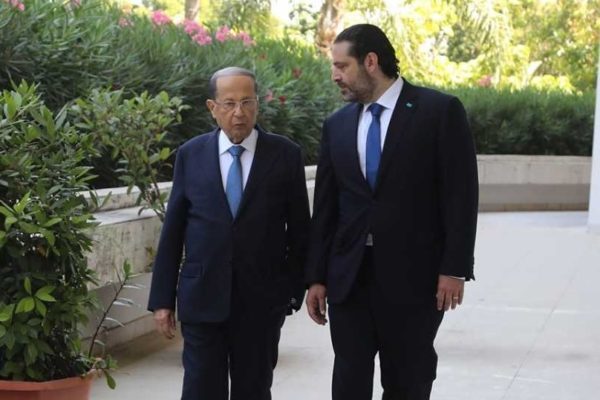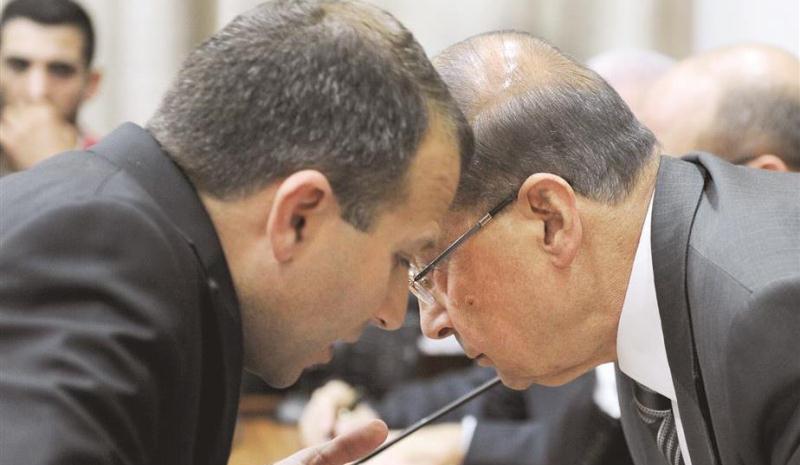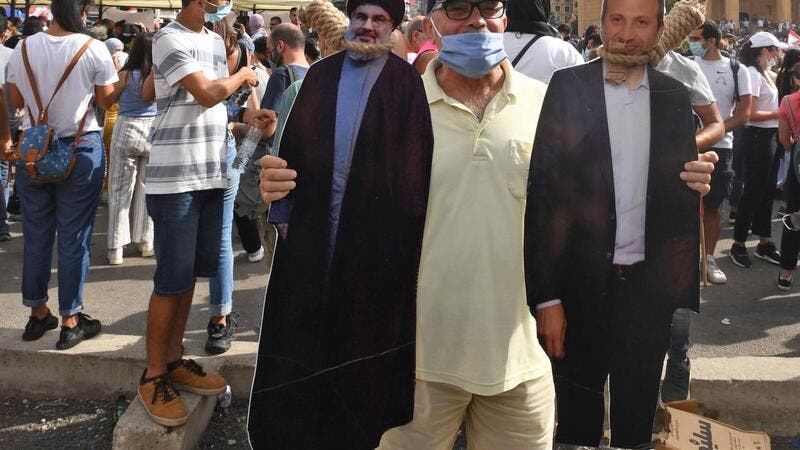
Forming a cabinet means initiating reform, which would implicate the entire political class. In the unlikely event that a cabinet is formed , the emerging civil society will not like it because the leaders who impoverished Lebanon cannot rebuild it.”
Beirut – There are two initiatives currently on the table to move the Lebanese cabinet formation talks forward. One is the brainchild of Parliament Speaker Nabih Berri and second is an expansion on an initiative proposed last September by French President Emanuel Macron.
So what is the problem?
It’s been six months now since Prime Minister-designate Saad Hariri was asked to form a government, and yet, he has repeatedly failed to come up with something acceptable to President Michel Aoun and his ambitious son-in-law Gibran Basil, head of the Free Patriotic Movement (FPM).
Hariri and Aoun agree on nothing. Their last meeting on March 22 ended in failure, with each side blaming the other for lack of progress.

The Prime Minister wants a minimised technocratic government of 18 ministers; Aoun wants an expanded one of 20-24, with a blocking majority for the FPM. A small cabinet means four Sunnis (including the premier), four Shiites, one Druze, and nine Christians (4 Maronites, 3 Greek Orthodox, 1 Roman Catholic, and 1 Armenian).
Christian ministers
Hariri wants to name two out of nine Christian ministers, but Aoun is insisting that only his party, the FPM, is entitled to nominate Christian ministers. Aoun justifies that claim by pointing to the fact that his party controls the largest Christian bloc in Parliament, with 29 MPs.
When it comes to portfolios, Aoun is also making claim to the Ministry of Interior, which has traditionally been held by a Sunni Muslim from Hariri’s Future Party. Hariri tried meeting him at midway, nominating neither a Sunni nor a Maronite for the job, but a Greek Orthodox. Aoun flatly rejected the proposal.
The two men were also quarreling over the Ministry of Foreign Affairs, which has traditionally been held by the Aounists. Gibran Basil curtly refused relinquishing it to a Sunni Muslim from Hariri’s team. Again, Hariri came up with an idea, suggesting that it goes neither to a Sunni nor to a Christian but to a Druze, which was also rejected by Aoun.
In his last cabinet line-up, rejected by Aoun, Hariri had made sure to accommodate the two Shiite parties, Hezbollah and Amal. A cabinet of 18 ought to have contained only two seats for the Shiites but Hariri gave them four. He increased their power however by giving those four ministers a total of six portfolios, becoming the largest share in Lebanese history.
The Berri Initiative
Berri has been mediating between the two sides, trying to come up with a suitable formula. He enjoys excellent personal relations with Hariri and happens to be part of the same coalition with Aoun, known as the March 8 Alliance.
The Berri Initiative calls on Hariri to abandon his insistence on a minimized cabinet in exchange for Aoun abandoning his claim to a blocking majority. Hariri accepted positively to the Speaker’s suggestion, dropping his claim for an 18-man cabinet.
An expanded cabinet would mean an increased share for Aoun and his Shiite allies, Hezbollah and Amal. It would also mean two Druze seats, rather than one. The first would be named by Hariri’s ally Walid Jumblatt, and the second by Emir Talal Arslan, an ally of Hezbollah.
Meanwhile, Aoun too has reacted positively to the Berri Initiative. He now says that he is willing to accept six rather than nine Christian seats, but on the condition that they are all named by the FPM and not the Future Party.
Revised French initiative
Immediately after the port explosion last August, President Emmanuel Macron came to Beirut, carrying a French proposal to the Lebanese political community. In addition to demanding political, monetary, and administrative reforms, the French initiative aimed at breaking the monopoly of political parties, demanding rotation of cabinet posts.
Matter of portfolios
Meaning the portfolio of Interior would no longer be reserved for the Future Party, nor would Defence be for the FPM or Finance for the Amal Movement. When meeting Macron for the second time in September, parties leaders nodded affirmatively to his suggestion. But when it came to cabinet formation, they failed to deliver. Berri made claim to the Finance Ministry, Aoun to Defence, and Hariri to Interior.
Macron was supposed to make another trip to Beirut last December but got locked down in Paris with COVID-19. Since then, his advisers have been on the phone with Lebanese leaders, trying to break the impasse.
Macron was hoping to bring Basil to Paris this April, for a one-on-one with Hariri. The two men had managed to sort out such an agreement back in 2016, when they jointly named three Christian ministers out of 30 ministers in Hariri’s first cabinet under the Aoun presidency.
The Hezbollah-backed, pro-Aoun daily Al Akhbar reported a phone conversation between Basil and an adviser to the French President.
When asked if Hariri was coming to Paris, the reply was: “He cannot refuse.”
Basil’s ambitions
Based on those words, Basil agreed to make the trip, requesting a meeting with Macron. He desperately needed the international exposure, especially after being ignored by all foreign diplomats visiting Beirut, the most recent of whom were Egyptian Foreign Minister Sameeh Shukri and Assistant Secretary-General of the Arab League Hussam Zaki.
It was Hariri who backed out, however, claiming that his schedule was full, with a Moscow visit scheduled on April 13 and a Vatican visit on April 22. Hariri also made it clear that he preferred that the meeting is arranged in Beirut rather than Europe, and that concrete concessions are extracted beforehand from both Basil and Aoun.
He claimed that he has already walked an extra mile to accommodate the president, insisting that under no conditions will Aoun get the right to name all Christian ministers.

Those who impoverished Lebanon can’t rebuild it
“Neither initiative will work” said Hilal Khashan, veteran professor at the American University of Beirut (AUB). Speaking to Gulf News, he explained: “Forming a cabinet means initiating reform, which would implicate the entire political class. In the unlikely event that Hariri and Basil form a cabinet, the emerging civil society will not like it because the leaders who impoverished Lebanon cannot rebuild it.”
GUKF NEWS

Leave a Reply
You must be logged in to post a comment.